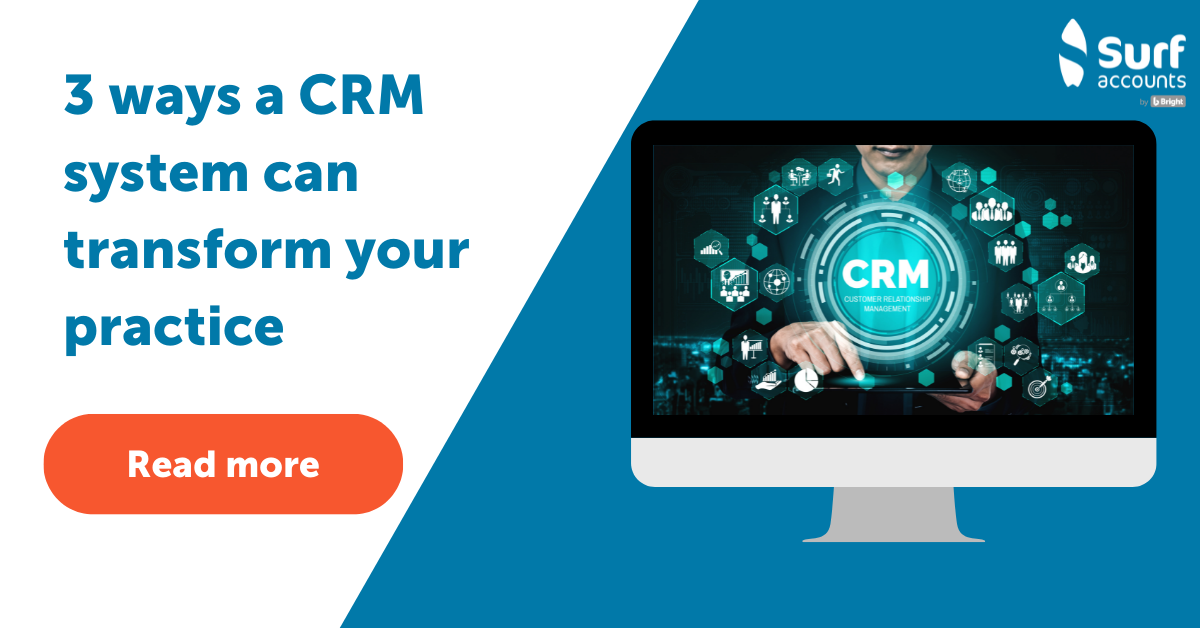3 ways a CRM system can transform your practice
Acquiring customers is not an easy thing to do. You must differentiate yourself from your competitors and reach your consumer through a barrage of information overload. The effort and expense of reaching these consumers can sometimes outweigh the benefits. While it is critical to continue to grow your business and gain new customers, it’s also important you don’t make the mistake of ignoring your existing customers.
The value of existing customers cannot be stressed enough. Maintaining existing relationships with your customers can lead to recurring purchases over their lifetime, which is consistent incoming revenue for your practice.
It is widely reported to be much cheaper and profitable to retain an existing customer than acquire a new one. For example, a recent study found:
This stems from the positive relationship you have in place with your existing customers. You have already collected data on them, and you likely have a good understanding of their likes and needs. This is what makes cross- and up-selling one of the best ways to maximise your profits. For context, the study mentioned above found:
However, to reach these numbers and maximise your profitability, you cannot just remember little details about your existing clients. You need to track everything to have the best chance of success. Manually tracking large amounts of customer data is not an easy thing to do. It can take up a lot of time, and it is prone to human error. A great way to avoid this, and reduce the time you spend managing customer data, is to use an accounting software with an inbuilt CRM system.

What are the benefits of an inbuilt CRM system?
Below, three ways a CRM system can transform your business are explored:
1. Track leads and contacts
A CRM system provides you with a hub to track all the leads and contacts your business receives. A CRM system allows you to organise your customers, contacts, and leads from the one platform, keeping note of each individual’s relevant details. Most systems allow you to separate each contact into relevant categories for your business, such as ‘Customers’, ‘Prospects’, ‘Suppliers’, ‘Payees’, and others. Additionally, leads are not always ready to buy from you straight away, but it is always good to keep in touch as they may purchase in the future if their business needs change.
2. Track all customer/prospect information
With a CRM system, you can add any relevant information you receive from a customer or prospect. You can also record the key notes from each call you have, meaning you will know where you left off if you contact them again. This also works for your colleagues, as they will be able see the notes you have left. This can give you the upper hand as your customers or prospects may feel valued, further building a long-term relationship, or creating a better customer experience.
3. Clearly see customer stage
A CRM system allows you and your colleagues to clearly track the customer journey and the stage which your customers or leads are at. It’s probably safe to say that you have some prospects which you haven’t sold to yet. Unfortunately, simply categorising those who haven’t bought your product thus far as one does not provide any real value to you or your employees. With a CRM system, you can categorise customers into segments based upon the different stages of the buying journey they may be in (e.g., ‘Call received’, ‘Presentation done’), making it easier to identify pick up where you left off.
Are you considering a CRM system?
Our cloud accounting software, Surf Accounts, offers an inbuilt CRM system, allowing you to manage your books and your practice from the same platform. Surf Accounts offers numerous accounting features, such as online invoicing, bank reconciliation, and online payments, while is also fully compliant to ROI and UK law. Surf Accounts is also integrated with our Surf Accounts Production, Surf Accounts Production, along with other software providers, such as BrightPay Payroll Software and DEXT.
What are the features of Surf Accounts CRM system?
Surf Accounts’ inbuilt CRM system offers the following features:
Of course, reading about features is not the same as seeing them in action. Why not book a free live one-to-one demo with one of our product experts to see our online accounting software’s inbuilt CRM system in action. Our product experts can answer any questions you may have, and demo all the other accounting features offered.
Related Articles
